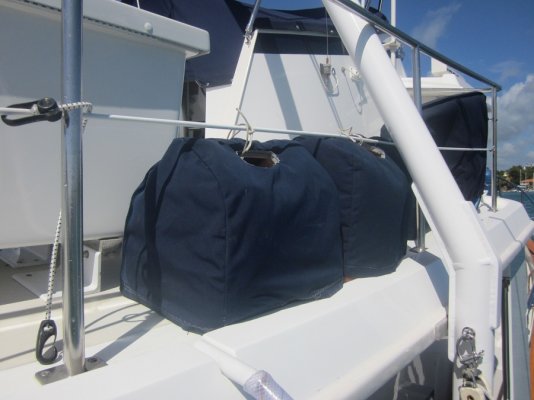Manatee
Veteran Member
I have a Honda generator and an outboard motor on the dinghy both requiring gasoline, where is the best place to store it? Don't want it on the lower deck and a spill on the upper deck could be a serious blow to an otherwise good day. I'm thinking of keeping the containers in the dink but that would mean no cover for the dink. Any thoughts or suggestions?


